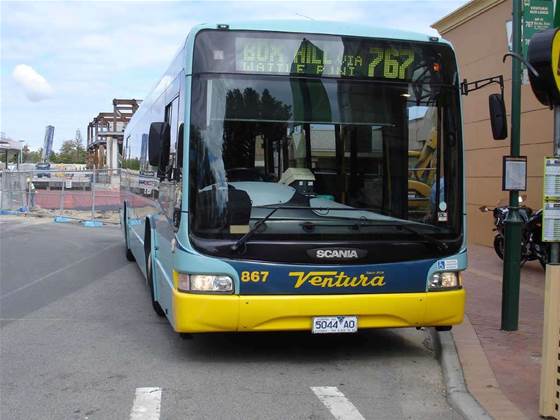The Victorian Government has suspended the rollout of GPS tracking on Melbourne buses, despite the project being close to complete.

The tracking project, which went to tender in 2009, aimed to allow Melbourne bus commuters to monitor the real-time position of their bus through a BusTracker application.
Intelligent transport systems provider Sigtec was awarded a contract for an estimated $16.1 million over five years in 2010 for the supply, maintenance and support of the system.
Transport solutions provider Plexicor was similarly awarded a two-year, estimated $1.4 million contract for the system's installation.
The GPS technology was also to be used to monitor the performance of new Melbourne Metropolitan Bus Franchise operator Transdev, which won the tender to take over the network in April this year from incumbent Ventura.
Part of Transdev’s contract stated its timetabled services would be monitored via GPS to ensure reliability and punctuality, with penalties to be incurred for late or cancelled services.
The Victorian Government spent the past two years fitting out the city’s buses with the technology, but it has now revealed the project will be halted.
Public Transport Victoria (PTV) this morning confirmed the project had been suspended indefinitely, as first reported by The Age. A review found it would not be cost effective to continue with the technology currently being used.
A spokesperson for PTV told iTnews bus tracking was currently operating on 30 percent of the Melbourne's network 1400 vehicles — specifically Transdev buses. The Melbourne metropolitan area has around 40 individual bus operators.
The department is reviewing the technology on the remainder in order to determine the most cost effective and best system to be used.
"Although bus tracking equipment has been fitted to almost all buses, the system is not yet operational on 60 percent of the fleet due to the need to install depot equipment and train the operators in its use," a spokesperson said.
"There is also a considerable effort involved in entering reference and timetable data for all bus routes before the system can be used, so it is not simply a matter of just turning it on."
The spokesperson said it had become clear that the complexity of the system, selected three years ago, was driving undisclosed "exorbitant" operating costs.
"So the decision was taken to constrain the system to Transdev-contracted buses for the time being while we explore whether there is a more cost effective way to provide bus tracking," the spokesperson said.
"Based on our initial look at the market, we believe that there are savings of several million dollars per year to be made in operating costs."
Chris Lowe, executive director at Bus Association Victoria, told iTnews the current system was "not integral" for Melbourne bus travellers and new base transceiver station (BTS) technology needed to be introduced.
"The current [system] is dated and since its implementation it's been unreliable and not totally fit for purpose," he said. "Since then we've seen GPS technology increase in leaps and bounds and costs come down. "



_(20).jpg&h=140&w=231&c=1&s=0)
.png&h=140&w=231&c=1&s=0)






 iTnews Benchmark Awards 2026
iTnews Benchmark Awards 2026
 iTnews Executive Retreat - Security Leaders Edition
iTnews Executive Retreat - Security Leaders Edition
 iTnews Cloud Covered Breakfast Summit
iTnews Cloud Covered Breakfast Summit
 The 2026 iAwards
The 2026 iAwards










_(1).jpg&h=140&w=231&c=1&s=0)



